Najnowsze Wydania
-
GN 44/2025 Dokument:(9477129,O szarej godzinie)
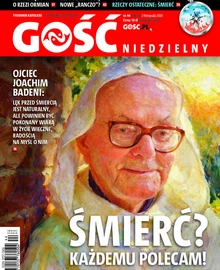
-
Historia Kościoła (12) 06/2025 Dokument:(9471760,Sobór sprawił, że ludzie znowu zaczęli mieć pytania do Kościoła. Edytorial nowego wydania)
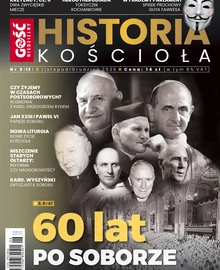
-
GN 43/2025 Dokument:(9469044,Rodzina – sens i stabilność)
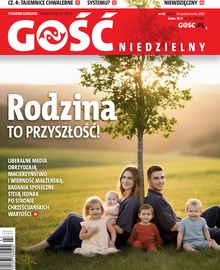
-
GN 42/2025 Dokument:(9458103,Zaczarowana miotła)
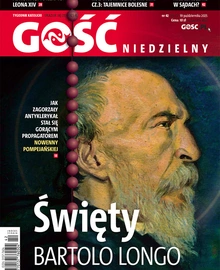
-
GN 41/2025 Dokument:(9450251,Odpowiedzialni mężowie)
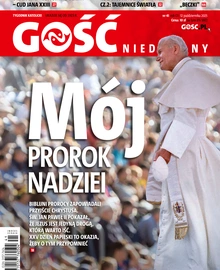
We should care for the future of Christianity in the East-central Europe
There is no room for complacency because of the packed churches since we are facing the process of ‘creeping secularisation’. The situation will not improve unless the churches in the East and Central Europe propose a qualitatively new offer for the believers.
A Catholic Minority Church in a World of Seekers. A Sociologist’s View– was the topic touched upon by Prof. Staf Hellemans from the Netherlands. He remarked that some time ago we could talk about a sheepfold of believers, today we are facing individualisation of faith. He pointed out that the people, who name themselves ‘seekers’ contribute today for a much numerous group inside the Church. He also implied that the religious offer should be developed by hierarchic structures. According to his beliefs, more autonomy should be put on individual approach towards believers. The Church take care about its attractive offer itself. The offer for people who can be happy by finding God. According to Prof. Hellemans we should also resign from concentration on uniformity within the Church. Catholic communities will become smaller, whereas in some European countries they will even become a minority. Certain churches should take care of the offer, just like the others ( Buddhidm) do –the professor form Tilburg University stressed.
On the other hand Prof. Peter Jonkers from the Netherlands focused on the issue of the future of the Church from the perspective of needs in the era after Second Vatican Council. – How the Church should become a mediator between God and the World – is today, from my perspective, the key issue. Especially in the context of seeking for ‘the demanding’ people – he said, in reference to the breakthrough brought by the constitution of Lumen gentium. He remarked that we should drive away from European theology and to notice the necessity for broader perspective. He believes that restoration of the Church shouldn’t be carried out only on the level of language and symbols, but primarily on the level of authentic revitalisation of communities. It cannot end at institutions and national denominations.
In reference to the lack of vocations Prof. Jonkers claimed that theology of vows should be thought over again. It should be done in a way that contemporary man had consciousness that fidelity doesn’t mean contradiction to the joy and freedom of life. We should offer strong identification for the future generations, but also discover it for ourselves – it should be deeper than what is offered by any external sign, such as habit or soutane.
The Rev. Prof. Tomáš Halík claimed that the work carried out in the Prague meeting will be significant for the future, because we need to reflect on the formation of the better world, and development of indications. – We want to find something extraordinary, something that the Church could give to the society, because we know that it cannot answer all the questions asked by the modern man. We want the Church to give an impulse for the people who create free society. The Church has pragmatism and nostalgia for the times, when it constituted for great strength and when its voice, as an institution, was respected. Today, unfortunately the Church has lost its vision. We don’t search for defence and consolidation of the Church as an institution, but we are here in the name of the seekers, to contemplate on how to open people for dialogue –the prominent thinker concluded.

Polecane w subskrypcji
-
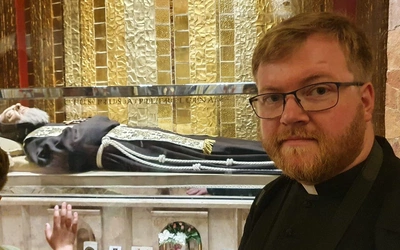
- Kościół
-
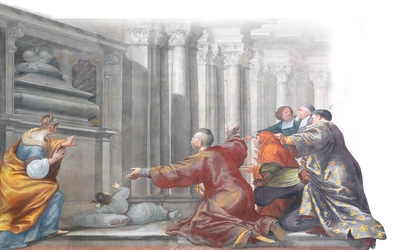
- Kościół
-
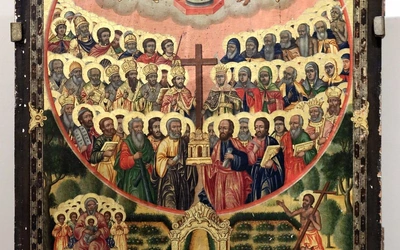
- Kościół
-

- Rozmowa


















